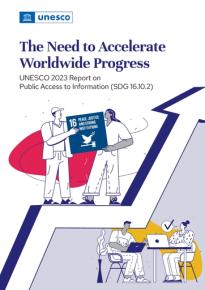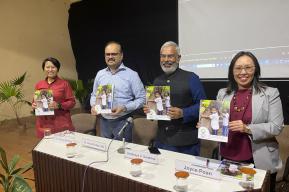News
Enhancing Disaster Resilience with ICTs in Southeast Asia: 7th Monsoon School on Urban Floods

Floods in Southeast Asia pose a significant and recurring challenge, stemming from a complex interplay of natural and human factors. This region experiences a tropical monsoon climate, characterized by heavy rainfall during the monsoon season, which leads to riverine and coastal flooding. The geographical landscape of low-lying coastal areas and river deltas exacerbates vulnerability to floods. Additional factors include deforestation-induced soil erosion and urbanization-related issues such as inadequate drainage systems and construction on floodplains. Climate change contributes to extreme weather patterns and rising sea levels, further heightening flood risks. The lack of sufficient flood protection infrastructure, coupled with high population density and inadequate preparedness and response mechanisms, compounds the problem. Moreover, the management of transboundary rivers requires international cooperation for effective water resource management.
The Average Annual Losses (AAL) in south Asian countries have surged exponentially higher than previous estimates. In countries like India the total AAL is 3.34 of the GDP, 7.65 in Nepal and 6.77 in Pakistan. This alarming situation underscores the urgency of in-depth studies and training for future generations, enabling them to harness technologies and data to confront such phenomena effectively.
The Monsoon school focused on imparting knowledge about concepts and techniques for employing technology in disaster risk reduction (DRR) as it relates to natural disasters in the region. The school provided cutting-edge scientific insights and technological solutions to address the escalating urban disaster challenges.
With a strong emphasis on addressing the prevalent issue of urban flooding, particularly common in South Asian countries such as Bhutan, India, Nepal or Sri Lanka, the event was organized as an integral component of the research project titled "Urban Modelling: Development of Multi-sectorial Simulation Lab and Science-based Decision Support Framework to Address Urban Environment Issues." This initiative was financially supported by the Ministry of Electronics and Information Technology (MeitY) and the Department of Science and Technology (DST) under the National Supercomputing Mission (NSM) of the Government of India and UNESCO.
The response was strong, with 170 applications received and 45 selected (22 females and 23 males). Nine participants had PhDs, while the rest had master’s degrees. The participants included 26 from educational institutions, 12 affiliated with government organizations, 6 from private sector and one non-governmental organization. The diverse group of participants, including young scientists and engineers, created a dynamic workshop experience.
The intensive week-long programme included lectures, tutorials, and hands-on workshops conducted by leading experts in various domains including urban meteorology, urban hydrology, radar and remote sensing analysis of rain events, artificial intelligence, big data analytics for urban processes, engineering practices, and post-flood responses.
As climate change continues to exacerbate the frequency and intensity of urban floods, the collaboration between the Interdisciplinary Centre for Water Research in India, the Indian Institute of Science and UNESCO underscored the need to enhance capacities of professionals with skills that convergence scientific research with Artificial Intelligence, Big Data, Data Innovations and new technologies to pave the way for more resilient and adaptive urban areas. The UNESCO “Open Data for AI: What now?” served as important reference during the school in highlighting concrete steps that countries can take to open data.
UNESCO advocates for Open Solutions as it promotes, inclusion, and accessibility across multiple domains and implicitly introduces an atmosphere where barriers to knowledge sharing are lowered. As a key driver for innovation, accountability, and the democratization of knowledge, Open Solutions ultimately contribute to the expansion and development of inclusive knowledge societies.

Urban floods are a pressing concern in this region, and it is essential to equip our future leaders with the latest knowledge and technologies to effectively mitigate these challenges. This partnership with UNESCO aligns perfectly with our goals.
This immersive program has been an incredible journey, equipping me with the knowledge and tools to contribute to urban flood management and disaster risk reduction and with a multidisciplinary toolkit to navigate the complex landscape of urban flooding.








 User Center
User Center My Training Class
My Training Class Feedback
Feedback

















Comments
Something to say?
Log in or Sign up for free